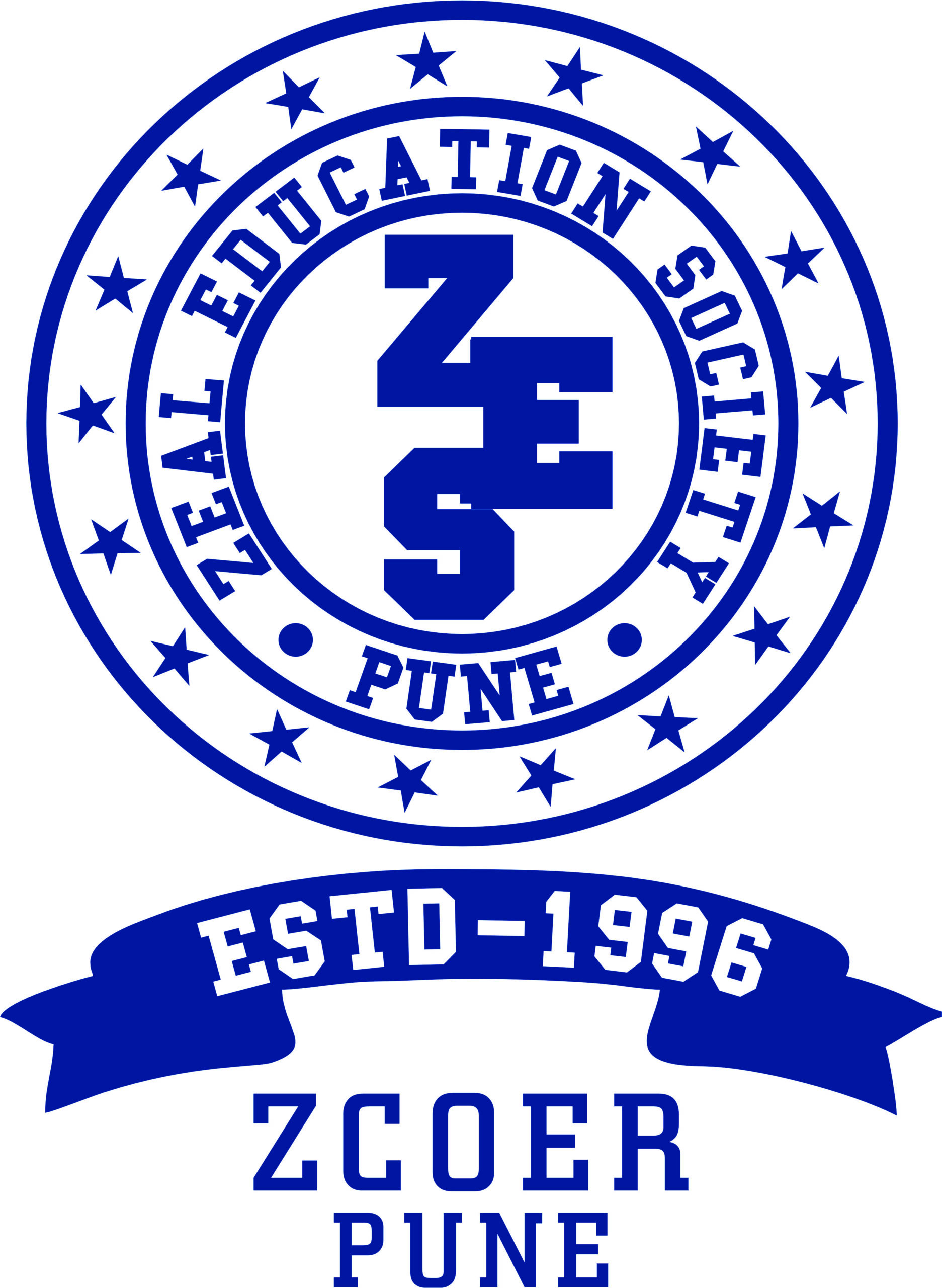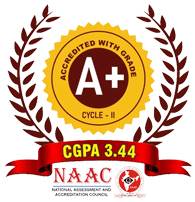Computer Engineering
- Computer Engineering
- About Department
- From HOD Desk
- Vision & Mission
- PEO & PSO, PO & CO
- Autonomy Constitution
- Faculty Profile
- Lab Facilities
- Innovations in Teaching – Learning
- Research & Publication
- Skill Development
- Faculty Achievement
- Students Achievement
- Student Association
- Placement and Internship
- Center of Excellence
- Life @ Computer
- Downloads
- Newsletters
Submit your review | |
1 2 3 4 5 | |
Submit Cancel | |
My time at collage was transformative, offering excellent academics, hands-on learning, and strong faculty support. The vibrant campus life, industry exposure, and lifelong friendships shaped my career. Proud to be an alumnus, I highly recommend it for a well-rounded education and a bright future.
Best source of knowledge..very helpful for self learning and growing skills.
1. Introduction
In the rapidly evolving field of education, integrating technology into teaching and learning has become essential. One of the key innovations in Computer Engineering education at Zeal College of Engineering and Research, Pune, is the development and implementation of video lectures and digital learning resources. This initiative is aimed at enhancing students’ learning experiences by providing flexible, accessible, and engaging educational content.
With advancements in online education, digital learning tools, and multimedia resources, faculty members have developed a systematic approach to delivering high-quality video lectures and supplementary learning materials. This innovation has helped bridge the gap between traditional classroom learning and modern digital education.
2. Objectives
The primary objectives of creating video lectures and digital learning resources include:
- Enhancing accessibility for students with different learning preferences.
- Providing flexibility in learning pace, enabling students to revisit concepts as needed.
- Supporting self-paced learning and improving comprehension of complex topics.
- Offering additional learning materials to complement classroom teaching.
- Strengthening the learning ecosystem through digital content and resources.
3. Application
This initiative applies to various subjects within the Computer Engineering curriculum and is utilized in multiple academic scenarios:
- Core subjects such as Data Structures, Algorithms, Computer Networks, and Artificial Intelligence.
- Practical courses that require step-by-step demonstrations of software, coding, and debugging.
- Supplementary learning materials for students preparing for exams, industry certifications, and competitive tests.
- Blended learning models, integrating online resources with traditional classroom teaching.
4. Utilization
The created video lectures and digital resources are utilized in multiple ways:
- Lecture Recordings: Pre-recorded video lectures uploaded on college LMS, YouTube, or institutional portals.
- Tutorials and Demonstrations: Hands-on coding demonstrations and problem-solving techniques.
- Concept Reinforcement: Quick revision videos and summaries of complex topics.
- Industry-Relevant Content: Guest lectures and industry expert sessions recorded for reference.
- Online Assessments & Quizzes: Integrated quizzes within video content for better engagement.
5. Implementation
The implementation of video lectures and learning resources involves the following steps:
- Content Planning: Faculty members select key topics and develop structured lesson plans.
- Recording & Editing: High-quality video lectures are recorded using professional tools (Studio, Camtasia, etc.).
- Platform Selection: Videos are uploaded on learning management systems (Moodle, Google Classroom) or YouTube.
- Interactive Elements: Quizzes, assignments, and discussion forums are integrated into videos.
- Continuous Improvement: Regular feedback from students is collected to enhance content quality.
6. Benefits
The adoption of video lectures and digital resources provides multiple benefits, including:
- Increased Accessibility: Students can access materials anytime, from anywhere.
- Personalized Learning: Allows students to learn at their own pace.
- Better Engagement: Multimedia content enhances understanding and retention.
- Supplementary Learning: Supports students during revisions and exam preparation.
- Industry Readiness: Prepares students with self-learning skills required in the IT industry.
7. Use
This innovation has been widely used by Computer Engineering faculty and students at Zeal College of Engineering and Research:
- For Academic Learning: Core subjects and practical sessions are supplemented with recorded content.
- For Online Education: During remote learning or hybrid classes, students can access video lectures conveniently.
- For Skill Development: Faculty members create resources on AI, Machine Learning, Cloud Computing, and other industry-relevant technologies.
- For Placement Preparation: Videos on coding interviews, aptitude tests, and technical skills help students prepare for recruitment processes.
8. Innovation: Creating Video Lectures and Learning Resources
The use of video lectures and digital resources is an innovative approach that has transformed the learning experience. Faculty members have leveraged technology to improve knowledge dissemination, student engagement, and subject comprehension. This innovation goes beyond traditional classroom teaching and aligns with modern educational trends.
9. Statement of Clear Goals
The primary goals of this initiative include:
- Enhancing accessibility for students with diverse learning styles.
- Providing flexibility in learning by allowing students to review lectures at their convenience.
- Offering additional learning materials to reinforce classroom teaching.
10. Use of Appropriate Methods
The faculty at Zeal College of Engineering and Research, Pune, employs various methods to implement this innovation:
- Developing and sharing pre-recorded video lectures for core subjects.
- Creating tutorial videos and step-by-step demonstrations for practical sessions.
- Hosting online webinars and expert sessions, making them available as recorded resources.
- Using digital whiteboards, animations, and visual aids to enhance learning.
11. Significance of Results
The results of this initiative have shown significant improvements in student learning:
- Increased accessibility for students, particularly those in remote areas.
- Better comprehension of difficult concepts through engaging video content.
- Higher engagement levels, as students prefer visual and interactive learning.
- Improved academic performance, with students using recorded lectures for revision and exam preparation.
12. Effectiveness
The effectiveness of video lectures and digital resources is measured through:
- Student usage statistics: Number of views and engagement levels on online platforms.
- Course completion rates: Improvement in the number of students successfully completing subjects.
- Feedback and surveys: Student responses indicate positive impact on learning outcomes.
13. Conclusion
The initiative of creating video lectures and digital learning resources at Zeal College of Engineering and Research, Pune, has transformed teaching methodologies in the Computer Engineering department. By integrating modern educational technologies, faculty members have enhanced students’ learning experiences, accessibility, and engagement.
This innovation aligns with global education trends, making learning more interactive, flexible, and effective. The results show positive student feedback, improved learning outcomes, and better academic performance. Moving forward, the college aims to expand the use of digital resources, incorporate AI-based learning assistants, and further enhance the quality of online education.
Submit your review | |
1 2 3 4 5 | |
Submit Cancel | |

